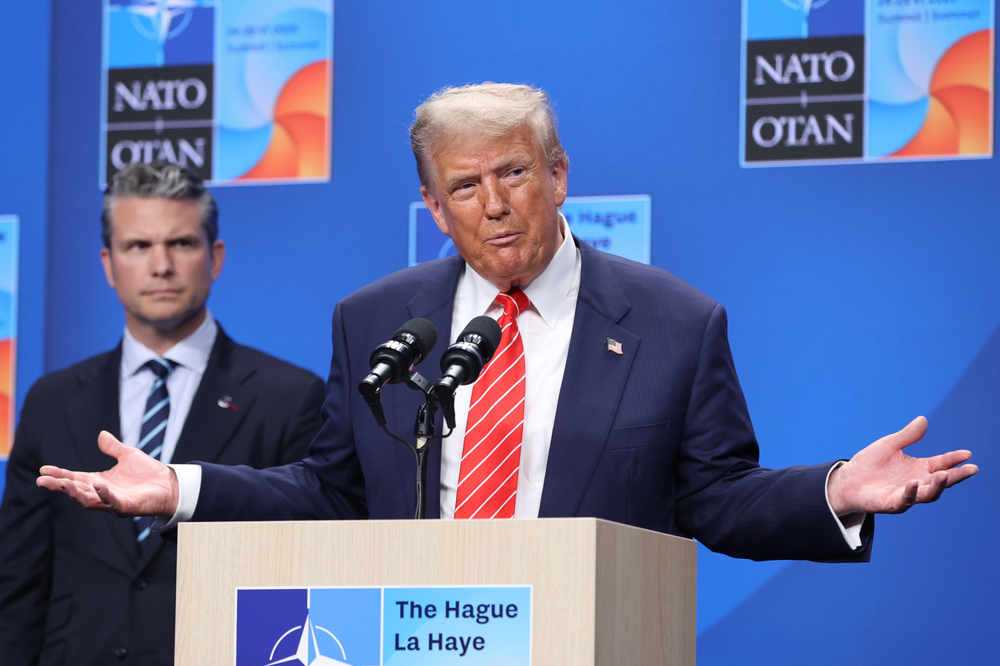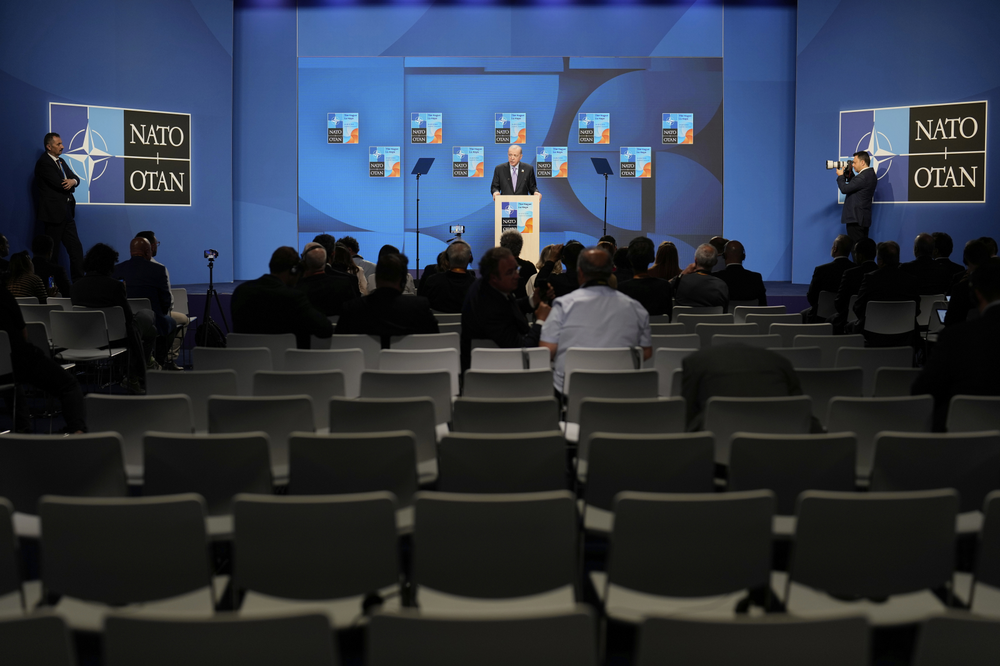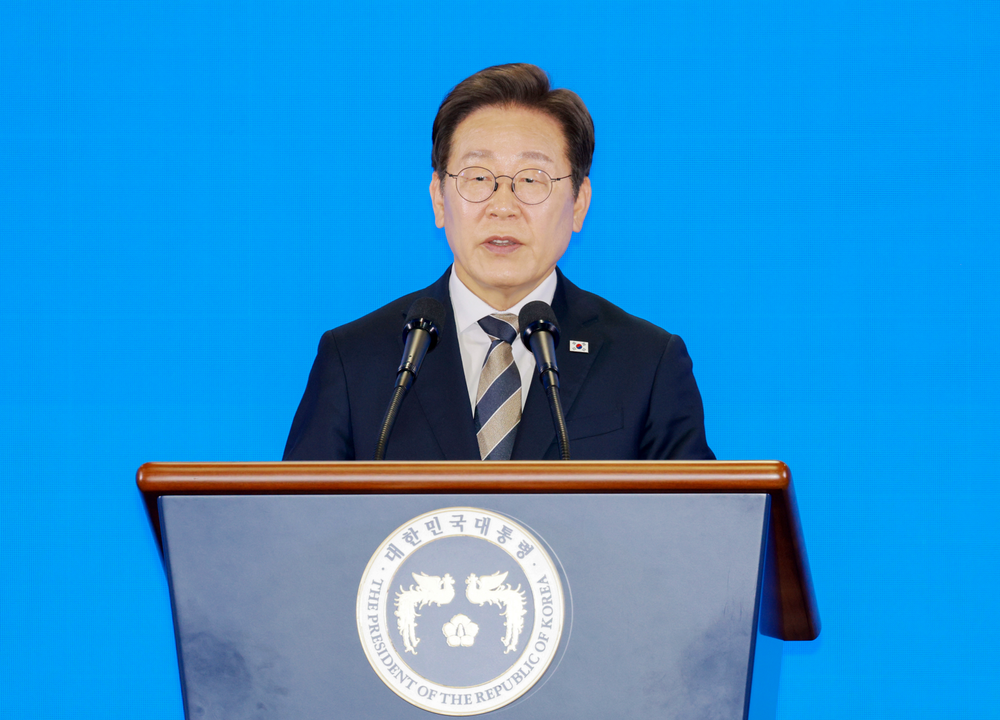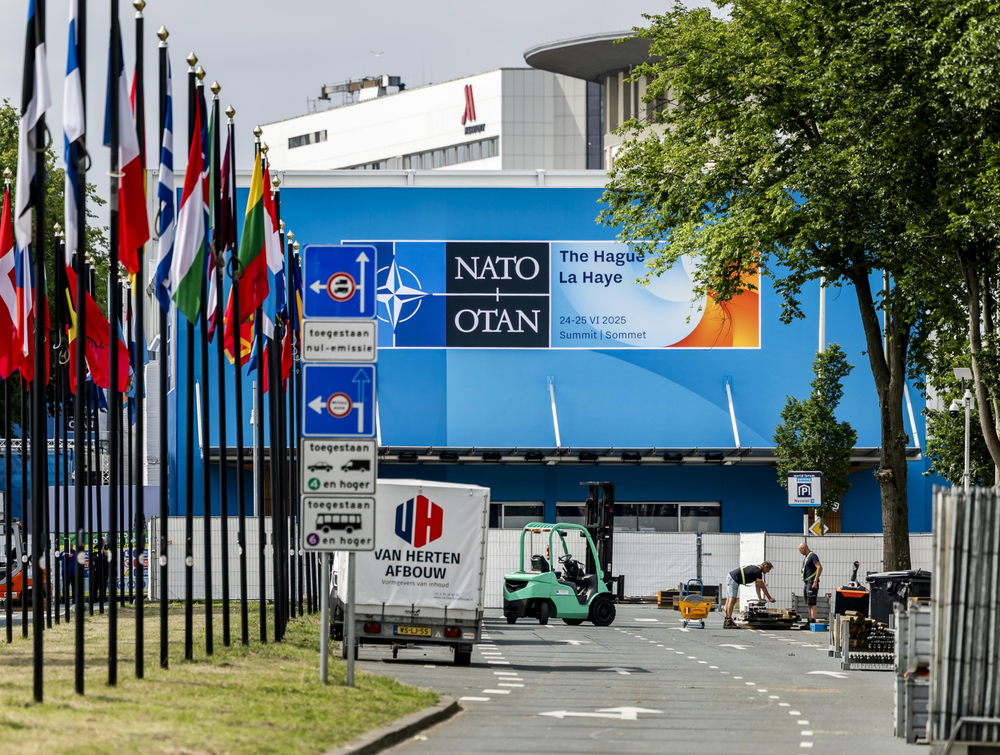- #Security & Defense

Key Takeaways:
- Trump's
cannibalisation of the summit also meant that there were no specific points
devoted to reaffirming the importance of enhancing NATO’s ties with its
Indo-Pacific partners: Japan, South Korea, Australia, and New Zealand.
- The
decision of Australian PM Anthony Albanese, South Korean President Lee Jae
Myung and Japanese PM Shigeru Ishiba to skip the NATO gathering in The
Hague—leaving New Zealand PM Christopher Luxon as the only IP4 head of
government in attendance—expectedly drew criticism from opposition parties at
home and raised concerns abroad about how these countries perceive the value of
their partnerships with NATO.
- Yet,
in the absence of the Biden administration acting as an honest broker insistent
on an inclusive and holistic approach to partnerships management, the IP4’s
downgraded presence in The Hague underscores the perception that the United
States is stepping back from the NATO-Indo-Pacific partnership framework.
Passing by the
skin of one’s teeth. This is how the NATO Summit in The Hague could probably
best be characterized. In the weeks leading up to the two-day meeting, it had
become clear that preserving internal cohesion was going to be the North
Atlantic Alliance’s utmost priority. Trump’s unpredictability and his
ambivalence towards the United States’ traditional allies meant that the agenda
had to be reduced to the bare minimum. Consequently, the outcome also
represented the lowest common denominator, an agreement to increase defence
spending in a way consistent with NATO deterrence objectives while keeping
Washington unequivocally committed to collective defence. In trying to
anticipate any curveball from Donald Trump, concerted efforts by NATO Secretary
General Mark Rutte and national leaders to appease and comply with the US
President clearly reflected their anxiety regarding the upcoming review on US
global force posture. The direct consequence of such a singular focus on
Trump’s budget demands was that no room for either long-term vision or ambition
could be expected. Every potential cause of friction with the Trump
administration was left out. No word about climate change, hybrid threats,
tougher strategy towards Russia and of course China can be found in the final
declaration, which represents a mere 10% of the length of last year’s Washington
declaration.
Trump's
cannibalisation of the summit also meant that there were no specific points
devoted to reaffirming the importance of enhancing NATO’s ties with its
Indo-Pacific partners: Japan, South Korea, Australia, and New Zealand. The
so-called Indo-Pacific Four (IP4) were once again invited to the annual NATO
summit as they have been every year since Russia’s full-scale aggression
against Ukraine. Under former President Joe Biden, Washington actively pursued
enhanced cross-regional defense cooperation between Indo-Pacific and European
allies and partners. In a marked departure from the previous
administration, current US officials have regularly reiterated their focus on
transactional relationships and region-specific strategies. At the
last Shangri-La
Dialogue, US Defence Secretary Pete Hegseth reaffirmed his administration’s
lack of support for increased collaboration between European and Indo-Pacific
allies, emphasizing that Europe should prioritize concerns in their backyard
and allow the United States to take full responsibility for Indo-Pacific
security. Gone are the days of a US president embracing the Transatlantic
Alliance’s traditional diplomatic symbolism and bridging the IP4 with NATO
under the framework of a global democratic coalition. This comes in spite
of continuous
reporting that North Korea has seemingly no intention to scale down
its support in terms of soldiers, workers, and arms to Russia’s war efforts
against Ukraine. Pyongyang’s entanglement in the conflict in Ukraine is in
fact, yet another demonstration of just how deeply intertwined the European and
the Indo-Pacific security theatres are.
The decision of
Australian PM Anthony Albanese, South Korean President Lee Jae Myung and
Japanese PM Shigeru Ishiba to skip the NATO gathering in The Hague—leaving New
Zealand PM Christopher Luxon as the only IP4 head of government in
attendance—expectedly drew criticism from opposition parties at home and raised
concerns abroad about how these countries perceive the value of their
partnerships with NATO. While Deputy PM Richard Marles had stepped in for
Albanese at last year’s NATO Summit as well, Lee Jae Myung and Shigeru Ishiba’s
cancellations have been framed as a missed opportunity to
double down on efforts under their predecessors to present South Korea
and Japan as
responsible and trusted partners in global security. In the case of President
Lee, his participation held further salience after protracted domestic
political uncertainty amid the leadership vacuum following Yoon Suk Yeol’s
imposition of martial law and his consequent impeachment. While optics matter
in international politics and diplomacy, for South Korea and Japan the stakes
were not high enough to rush bilateral meetings with Trump on burden sharing
and trade tariffs on the sidelines of the NATO Summit. Trump's inconstancy, on
full display at the G7 meeting in Canada, has made current leaders in Seoul and
Tokyo more cautious about investing diplomatic resources in potentially
unproductive engagements in the midst of pressing domestic issues and Middle
Eastern instability. All the more so, President Lee should wait for better
conditions for his long-anticipated inaugural talks with President Trump
instead of risking a potential ambush in a hastily organised meeting.
Attempts to read
the IP4 leaders’ non-attendance as indication of their commitment (or lack
thereof) to NATO and vice versa, have somewhat overshadowed some of the
important initiatives agreed in The Hague with respect to its relationship with
Indo-Pacific partners. Among them, Australia managed to sign a Partnership Agreement with
NATO’s Support and Procurement Agency while National Security Adviser Wi
Sung-lac and NATO Secretary General Mark Rutte reached an agreement to create a
director-general level consultation
mechanism between South Korea and NATO tasked with identifying
concrete ways to strengthen defense sector collaboration. Publicity and optics
aside, the bulk of NATO relationships with individual IP4 countries is built
not just around summit diplomacy but more concretely through regular contacts.
Last April, for instance, saw the ROK Defense Acquisition Program
Administration (DAPA) Minister Seok Jong-gun holding his first ever meetings with senior
officials from both NATO and the EU in Brussels, which arguably contributed to
Wi securing the agreement with Rutte.
As NATO allies
have pledged substantial commitments to increase defense spending, the focus
must now shift to maximizing the effectiveness of these investments, which
should translate into improved capabilities that justify increased financial
commitments. In this sense, like-minded partners with advanced industrial
ecosystems like some of the IP4 countries can provide substantial value in
terms of efficiency and flexibility to these efforts. NATO Secretary-General
Rutte has expressed willingness to involve the Indo-Pacific partners in
upcoming initiatives designed to bolster the Alliance's defense capabilities as
it expands operational commitments. Participating with NATO member countries in
collaborative procurement efforts in turn can offer Indo-Pacific national
defense industries the opportunity to leverage economies of scale, access
NATO-managed supply chains, and contribute to the development of shared
capabilities in support of collective security.
Significant
progress has been made in developing concrete pathways for cooperation between
the Euro-Atlantic and Indo-Pacific regions since the symbolic meaning of having
the IP4 leaders at the NATO Madrid Summit in 2022. Yet, in the absence of the
Biden administration acting as an honest broker insistent on an inclusive and
holistic approach to partnerships management, the IP4’s downgraded presence in
The Hague underscores the perception that the United States is stepping
back from the NATO-Indo-Pacific partnership framework, challenging structural
incentives for continued engagement between the two regions. As European
allies must learn how to set priorities and advance integration without US
leadership so too should NATO sustain the momentum for cooperation with
Indo-Pacific partners without robust American support. This
means consistent messaging that working as closely as possible with NATO
is very much in the advantage of Canberra, Wellington, Seoul, and Tokyo in
terms of how they assert their national interests within the Indo-Pacific
region.
As
Secretary-General Rutte pushes for more practical cooperation, it can be
expected that the bulk of NATO’s engagement with its Indo-Pacific partners will
continue to be pursued bilaterally. This is also a reflection of the fact that
aside from the joint recognition that what happens in Europe affects the
security of the Indo-Pacific and vice versa, the IP4 countries still hold
distinct levels of ambition when it comes to deepening their relationships with
NATO. Moreover, while there have been instances in which the IP4 have used
their collective platform to coalesce support over issues that represent direct
threats to their security—like North Korea’s missile
launches and its military cooperation with the Russia
Federation—sufficient interest in formalizing the IP4 grouping in the
vein of NATO's Partnership for Peace, Mediterranean Dialogue, and the Istanbul
Cooperation Initiative remains limited.
Francesca Frassineti teaches History of Contemporary East Asia at Ca’ Foscari University of Venice. Dr. Frassineti has extensive experience working in the academia-policy-public engagement nexus in the fields of international diplomacy and security. Her research focuses thematically on security and political economy within the Korean Peninsula and the Indo-Pacific as well as in relation to Europe. Moreover, she is a non-resident research fellow at the Asan Institute for Policy Studies and the Italian Institute for Political Studies (ISPI).


